Imagine you're standing in front of an immeasurably large floor-to-ceiling painting that has you floored. You can’t stop looking at it, and you need to know more. For me, it’s almost any piece at the Clyfford Still Museum in Denver. There’s a sense of elongating and expanding, getting ever-closer but never quite reaching…an ineffable something.
Instead of squinting at a tiny placard (that may just tell you what the piece is made from), you tap your phone and hear details about the artist’s life at the point in time the piece was made. You get context, and a sense of how this thing fits into the whole body of work. This is the magic of self-guided tour apps: they turn gallery gazing and sightseeing into immersive, captivating adventures.
Whether you run a museum, gallery, manage a historic site, or curate local walking tours, a thoughtful self-guided tours app creates memorable visits that guests rave about. And since word of mouth is one of the most effective (and cheapest) means of marketing, creating self-guided tours is a no-brainer for many organizations.
These platforms let visitors dive deeper into whatever catches their interest: scanning QR codes for secret stories and 3D models, following GPS-guided routes around town, or solving puzzles in a scavenger hunt. They also provide essentials like multilingual capabilities and WCAG-compliant accessibility options.
Best of all, you don't need to know how to code to create one. Most platforms offer intuitive walking tour app builders, letting you create apps that work on any phone without downloads. They provide analytics and marketing features to help you grow. Some cater to sponsorship-focused organizations, while others focus on direct tour sales.
Let's explore the five best apps for creating self-guided tours and mobile guides.
Tourient
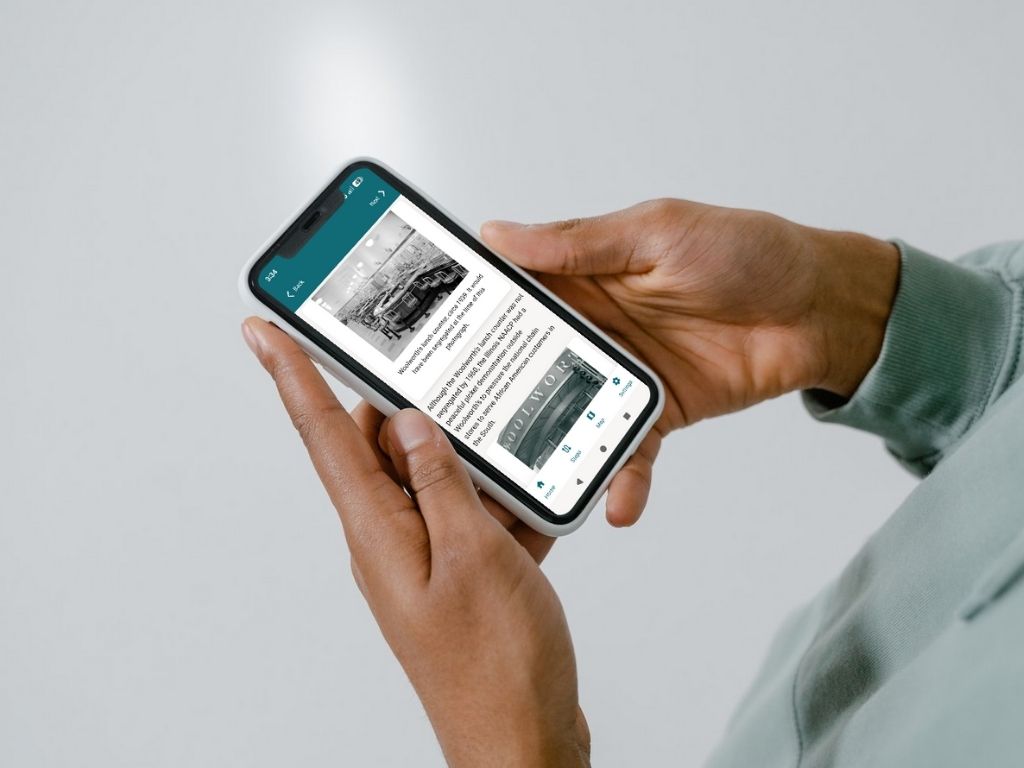
App Details
Price:$2495 per year
Tours:Unlimited
Languages:64
Designed for small to mid-sized museums, historic sites, tour operators, universities, local governments, and other organizations with stories to tell, Tourient is a self-guided tours app that offers unlimited tours and a robust set of features with straightforward pricing.
The tour builder is set up for non-technical users to get creating quickly. Customers note that the app experience is “intuitive for visitors of all ages and abilities” and that customer support is “excellent”.
It supports 64 languages and is WCAG Level AA compliant. The platform lets you use QR codes, keypad numbers, and/or GPS maps to help visitors find their way. Tourient includes 18+ types of drag-and-drop content blocks, and has custom branding that lets you individually theme each tour. There are options to add sponsors to tours, stops, and in-map advertising.
Tourient has a QR code generator right in the app, and flexible wayfinding options like keypad numbers and GPS maps. They set themselves apart with unlimited tours, great customer support, and a built-in feature to create printable exhibit labels and sharable social media posts from tour content.
| Pros: | Cons: |
|---|---|
| Affordable pricing | Lacks Bluetooth beacon support |
| Built-in QR codes and social post creation, text-to-speech service | Lacks gamification or badges |
| Sponsorship features | Lacks push messaging |
STQRY
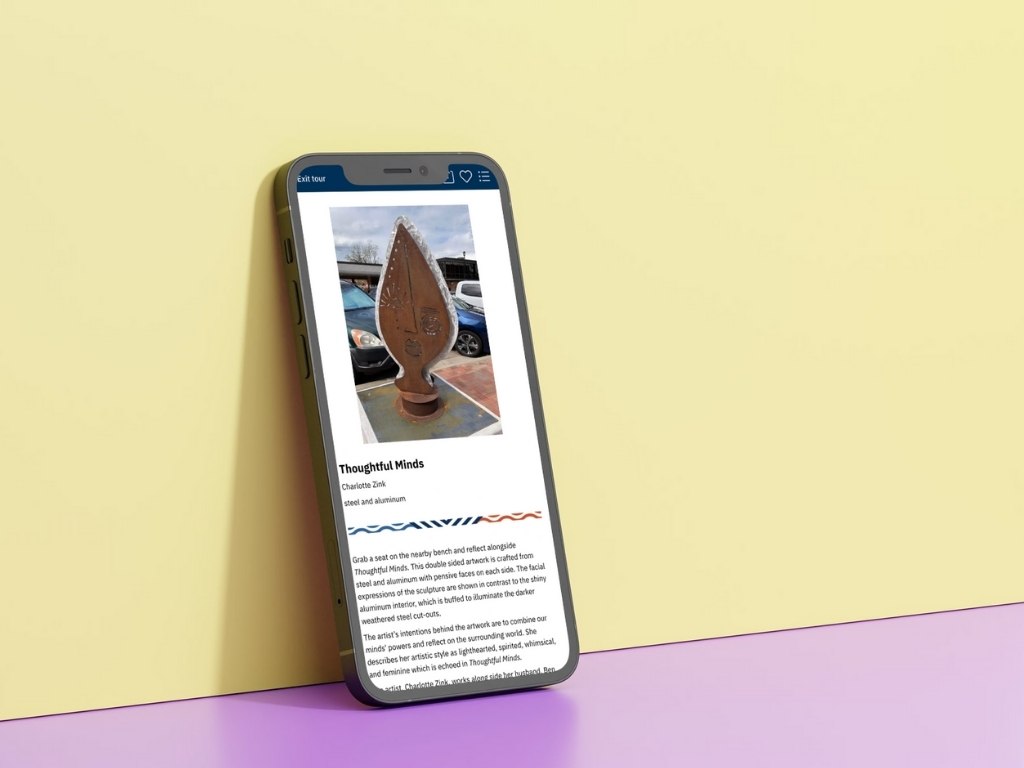
App Details
Price:$2495 per year
Tours:10
Languages:55
STQRY offers a self-guided tours app, museum kiosk solution, and other platforms for cultural organizations, tour operators, and local governments. Pricing depends on your choice of plan and various addons.
The tour builder experience, per STQRY’s customer reviews, can be “confusing” and “clunky”, with customer support being “rather unhelpful”. The app itself is simple, with some users noting it “loads slow”.
STQRY supports 55 languages, has basic accessibility features, and includes 10+ types of content (like images, audio, video, quizzes, 3D models). Like Tourient, STQRY has custom branding, but it is limited to a single brand color, a logo or image, and (for more money) a custom domain.
STQRY sets itself apart with geofencing and Bluetooth Beacon capabilities, to automatically trigger audio in certain areas. It also includes push messaging and gamification features, for an additional fee.
| Pros | Cons |
|---|---|
| Affordable pricing | Additional fees for several features |
| Many features and options | Confusing tour builder interface |
| Geofencing and Bluetooth beacons | Slow loading app |
YourAudioTour
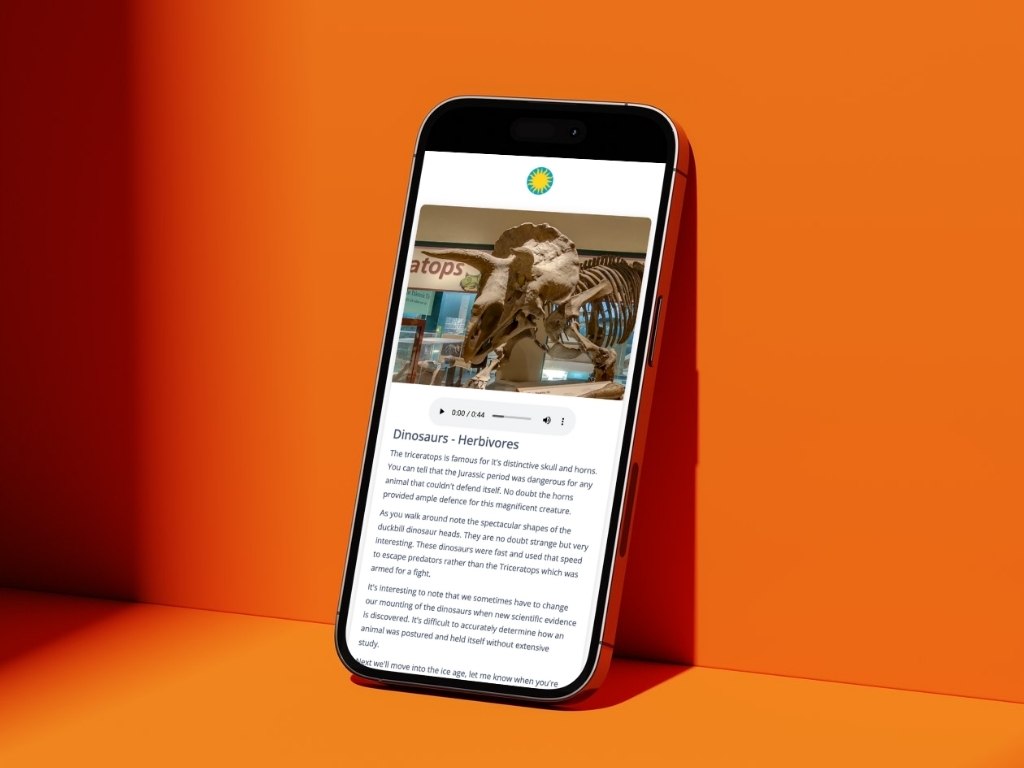
App Details
Price:$2988 per year
Tours:Unlimited
Languages:1
YourAudioTour is a self-guided tours app with a focus on simplicity. Pricing starts at $348, but to get basic features like analytics and custom branding, you’ll need to pay $2988 per year
The app has a simple tour builder, and similar to Tourient exports QR codes for sharing. It does not support multiple languages, and lacks WCAG compliant accessibility features. User reviews praise the company’s excellent customer support, and simplicity of creating tours.
YourAudioTour sets themselves apart with dial-in phone tours, and the option to make tours available for sale (for a 15% to 25% commission).
| Pros | Cons |
|---|---|
| Very affordable pricing | Lacks basic features in other apps |
| Responsive customer support | No multilingual support or accessibility compliance |
| In-app purchases | High commissions on purchases |
Axiell CultureConnect
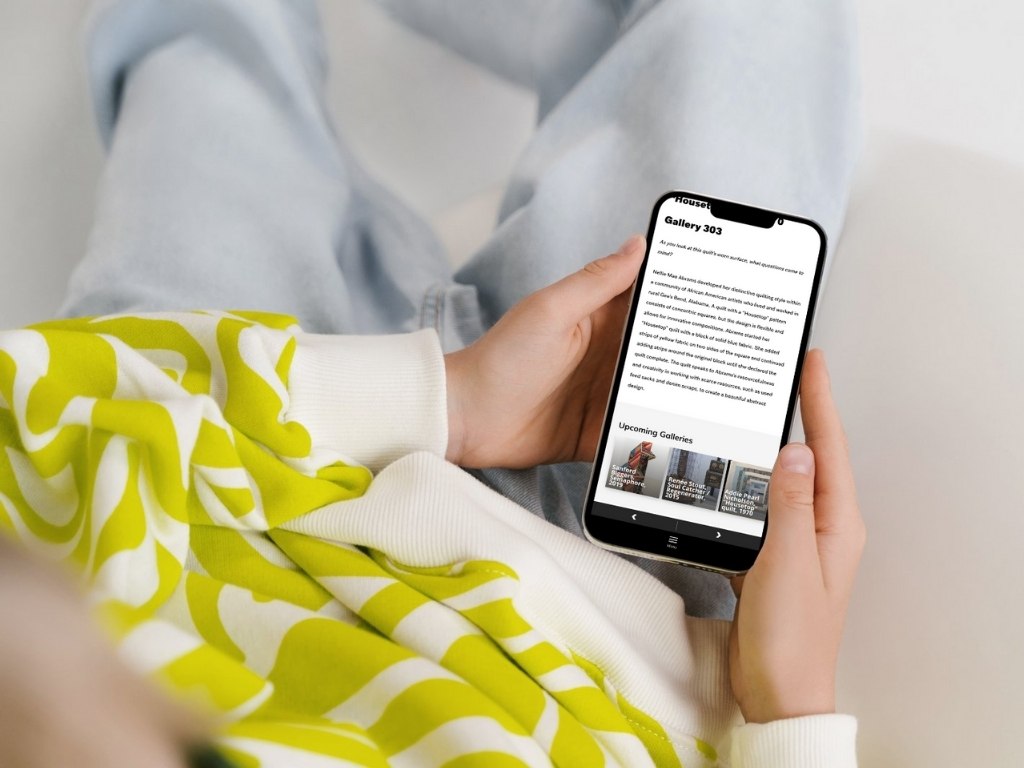
App Details
Price:$3750 per year
Tours:3
Languages:170
Axiell CultureConnect is a self-guided tours platform for large museums and cultural organizations. Pricing varies based on your choice of three tiers and basic or advanced feature sets.
CultureConnect supports more languages than any other platform, at 170. They have basic content types like text, images, audio, and video. For additional fees, there are “advanced” features like quizzes, games, image hotspots, and custom branding.
Users note that while the tour creation experience is somewhat confusing, customer support is responsive, with replies in just one day. The app itself is described as “slow and clunky”, though more recent users report it “loads fast”.
CultureConnect sets itself apart with enterprise integrations for large organizations, connections with other Axiell software, and a long-term 3-year contract for predictable pricing.
| Pros | Cons |
|---|---|
| Enterprise integrations | Expensive, tiered pricing |
| Custom branding | 3 year contract |
| Multilingual support | Customer support can be slow moving |
Bloomberg Connects
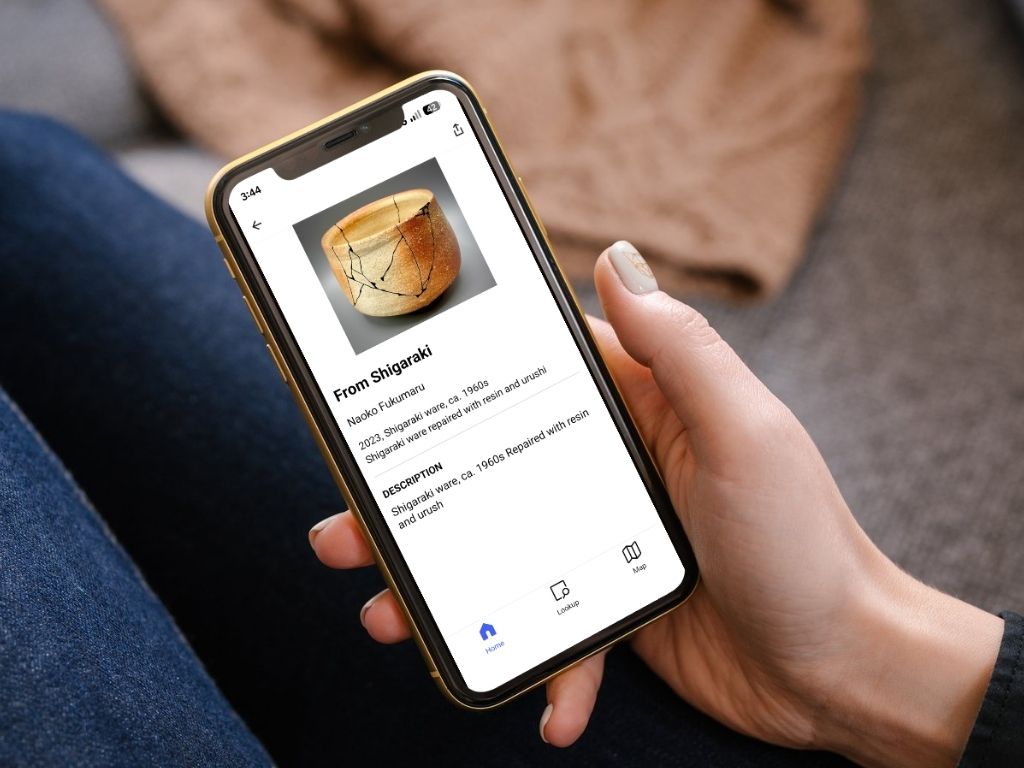
App Details
Price:Free
Tours:Unlimited
Languages:50
Bloomberg Connects is a free platform exclusively for non-profit cultural organizations. They offer digital guides and audio tours from 1100+ museums and cultural sites in one centralized app.
The app has limited features (text, audio, images, and video) and no custom branding, but handles the basics, meeting WCAG accessibility standards and supporting 50 languages.
User reviews note that the app has “a clunky interface, poor search functionality, and sometimes it doesn’t load at all”.
Bloomberg sets themselves apart by providing hands-on help with creating and marketing tours, which may be a deciding factor for organizations with limited financial and staff resources.
| Pros | Cons |
|---|---|
| Free platform | Exclusively for non-profit cultural organizations |
| Responsive customer support | Slow, clunky interface |
| Guided tour creation and marketing help | Limited storytelling tools (text, audio, images, video) |
FAQs about self-guided tour apps
Q: What are the pros and cons of using a self-guided tour app compared to traditional guides and docents?
Tour apps complement traditional tour guides, rather than replace them. Apps are available from anywhere at any time. This lets your visitors explore at their own pace, even remotely. And if you are selling tours (or tour sponsorships), they provide an additional revenue stream that can be a lifeline in uncertain economic conditions.
That said, tour apps lack the human touch and live expertise of real guides or docents. While some apps let you model the voices of your existing guides to capture the essence of that experience, it’s just not the same. The right path for you depends on your specific needs.
Q: Do self-guided tour apps accommodate users with visual or hearing impairments?
Many self-guided tour apps accommodate users with visual or hearing impairments, but not all do. Web Content Accessibility Guidelines, or WCAG, sets the global standard for apps and websites to provide a baseline of access. The standard has three levels of criteria: A, AA, and AAA.
Level AA is the legal compliance expectation for most governments. Look for apps that include features like transcripts, audio descriptions, ALT text, captions, contrast settings, and adjustable text sizes. Some apps support sign language videos and even Level AAA features like contrast settings.
Q: Can tour apps be customized for field trips or school groups?
Tour apps like Tourient and YourAudioTour let organizations quickly duplicate a tour and tailor the content for students by adding historical facts, quizzes, or interactive challenges aligned with state and local curriculum goals. As a teacher, you can ask your museum about customizing self-guided tours for school field trips.
Q: What privacy features should organizations consider when choosing a self-guided tour app?
Not all tour apps are compliant with privacy laws like GDPR, CCPA, or FERPA. Look for privacy-focused features like consent-first design, data import and export tools, cookie-less analytics, and multi-region hosting to control where your data is stored.
